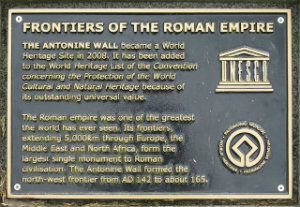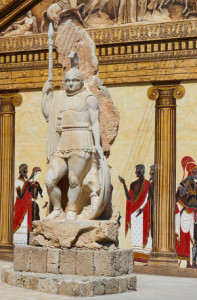Why Did The Roman Empire Fall?
The empire of Rome is one that, even today, we look to when considering great empires and the best possible ways to improve our own. Characterized by a strong government and even stronger military (and well known for gladiators and the Colosseum), Rome lasted for centuries before finally succumbing to … well no one really knows. But there are a number of factors that likely contributed to this process, factors such as:
- Reliance on Slave Labor
- Driving the Empire to Financial Ruin
- Barbarian Invasions
- Corruption in the Government
- The Success of the Eastern Empire
Some Explanation Of The Fall
1. Slave Labor
Rome is well-known to have utilized slave labor to an extreme extent8. Yet the Romans would gather their own slaves from other parts of the world and bring them to work in their fields and shops. Unfortunately, the supply of slaves started to dwindle and with no one to work, there was little that could be done for the people of Rome (especially the wealthy). This led to a screeching halt in expansion.
2. Financial Ruin
Another problem that came about was the financial ruin of the empire. With so many wars happening at once it taxed the economy. And of course, a taxed economy means more taxes on the people of the empire. The rich and poor were taxed nearly to their breaking point and many of the rich fled the area in hopes of avoiding the taxes. This resulted in very empty treasure troves that once overflowed with the spoils of war.
Though it took a very long time for someone finally to match the might of the Roman military, it did happen when a succession of Germanic armies which slowly whittled the Roman empire down to nothing. Beginning in the 300’s the Germanic armies had hedged in the Roman empire but it was not until 410 that the Romans suffered their first great defeat. A second raid in 455 left them barely standing and the final blow came from the Germanic tribes in 476 when the Roman emperor was finally overthrown.
4. Governmental Corruption
As with any executive, there was the opportunity for corruption in the government of Rome. Unfortunately, as Rome continued to grow in size it became more and more difficult to control and the emperor was often usurped by his own bodyguards who were interested in more power or better offers from others who wanted to be emperor. In the end, no one knew who they could trust, whether they were high powered officials or lowly working class citizens. The corruption extended so far that no one was able to rule anymore.
6. The Eastern Empires Success
Somewhat contrarily, as the Eastern Empire began to thrive and prosper, the Western Empire, where Rome existed, began to falter. The Eastern Empire spent time and effort on fortifying their cities and ensuring that they could not be attacked leaving Rome to itself and making it more susceptible to attack in the long run. As the Barbarians and other enemies of the empires were rebuffed from the East, they would instead turn to the less protected West.
Each Factor Played Its Part
As you can see there are a number of factors that played a role in the downfall of Rome. Each may have had a little part but eventually, combined altogether, there was nothing more that the Romans could do and the once great empire was forced to succumb. That doesn’t make it any less of an amazing feat however, that such an amazing empire was ever able to exist.








